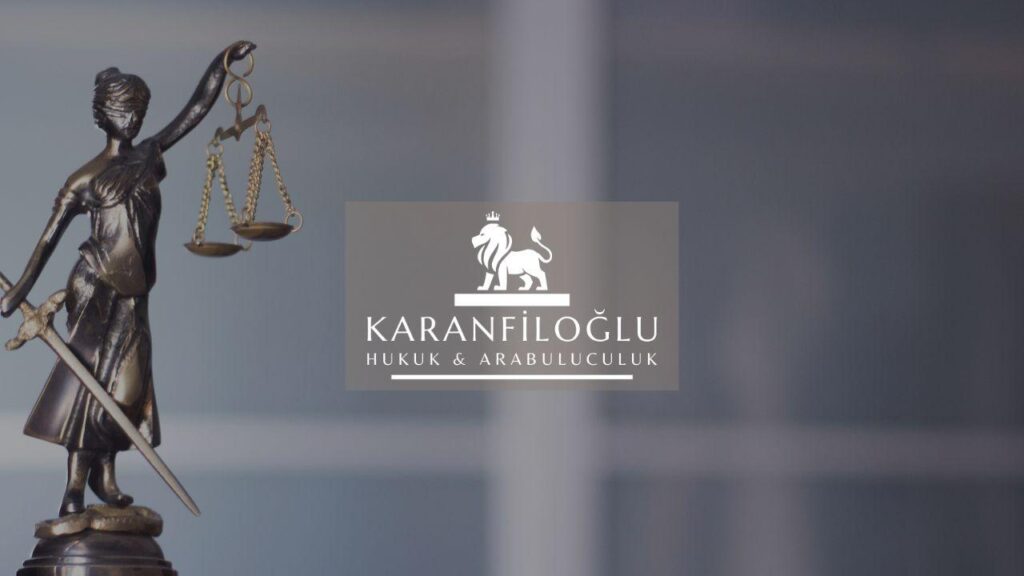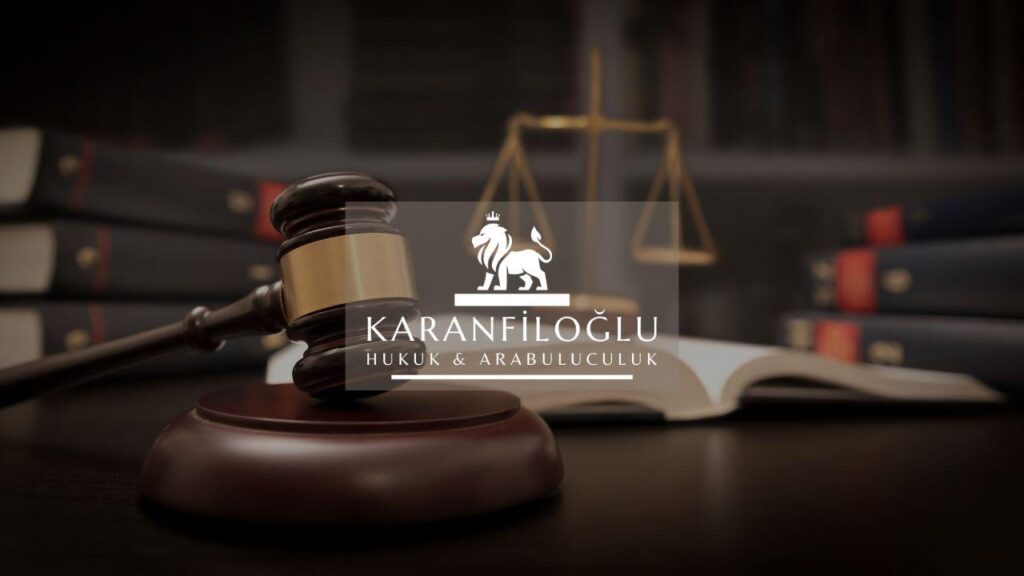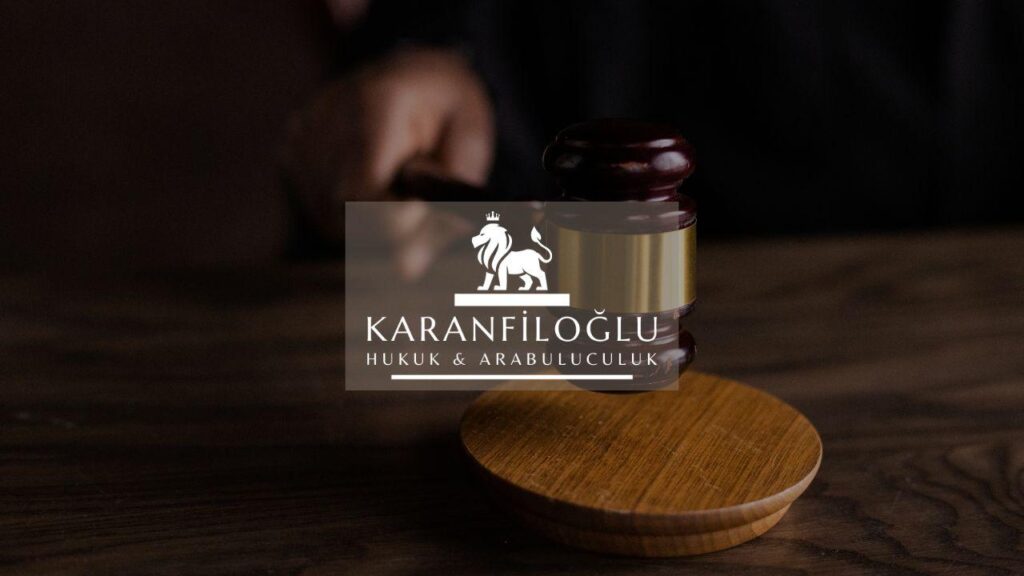In the ever-evolving landscape of labor law, mediation has emerged as an invaluable tool for resolving disputes between employers and employees in Turkey. Mediation provides a more efficient, cost-effective, and amicable solution compared to traditional litigation, ensuring that both parties can reach a mutually acceptable agreement without the prolonged timeframes and high costs associated with court proceedings. At Karanfiloglu Law Office, we understand the complexities of labor law and the importance of maintaining harmonious workplace relationships. Our team of experienced mediators and legal professionals is dedicated to guiding you through the mediation process with expertise and sensitivity, safeguarding your rights, and fostering a fair resolution. Whether you are an employer seeking to navigate compliance issues or an employee facing a workplace dispute, our tailored services cater to your specific needs, ensuring a balanced and just outcome.
The Role of Mediation in Resolving Employment Disputes
Mediation plays a pivotal role in resolving employment disputes in Turkey by fostering open communication and collaboration between disputing parties. Unlike court proceedings, mediation encourages both employers and employees to express their concerns and interests in a less adversarial setting. This collaborative environment often leads to more creative and tailored solutions that are acceptable to both parties. By prioritizing mutual understanding and respect, mediation not only helps to resolve conflicts more quickly but also aids in preserving professional relationships, which can be crucial for long-term workplace harmony. At Karanfiloglu Law Office, our expert mediators facilitate these discussions, ensuring that all parties feel heard and understood, ultimately guiding them towards a fair and satisfactory resolution.
In Turkey, the legal framework governing mediation in labor disputes was significantly strengthened with the introduction of the Labor Courts Law No. 7036, which made mediation a mandatory first step before litigation for certain disputes. This requirement underscores the importance that the Turkish legal system places on mediation as a means to alleviate the burden on courts and expedite the resolution of conflicts. By mandating mediation, the law aims to provide a platform where both parties can negotiate in good faith under the guidance of a skilled mediator. This legal mandate has proven effective in resolving a substantial number of disputes without the need for protracted legal battles. At Karanfiloglu Law Office, we stay abreast of these legal developments to ensure that our clients benefit from the most current and effective dispute resolution methods available.
Choosing mediation not only aligns with the legal requirements but also offers numerous practical advantages for both employers and employees. The confidential nature of mediation ensures that sensitive workplace issues can be discussed openly without fear of public disclosure, protecting the reputations and interests of all involved. Additionally, mediation affords greater control over the outcome, empowering parties to craft solutions that specifically address their unique needs and circumstances. At Karanfiloglu Law Office, we emphasize the empowerment and protection of our clients throughout the mediation process. By fostering a supportive and confidential environment, our dedicated mediators help parties to achieve resolutions that are not only legally sound but also conducive to a positive working relationship going forward. Mediation through Karanfiloglu Law Office means committing to a balanced, expedient, and respectful approach to resolving even the most complex employment disputes.
Legal Framework and Process of Mediation in Turkey
Mediation in Turkey, especially in the realm of labor law, is governed by the Law on Mediation in Civil Disputes (Law No. 6325) and the Turkish Labor Courts Act (Law No. 7036). Under these regulations, mediation is a prerequisite before initiating a lawsuit for certain labor disputes, such as claims for reinstatement or monetary compensation. The process involves both parties voluntarily engaging with a neutral third-party mediator who facilitates discussions and negotiations. The mediator does not make a binding decision but aids in achieving a mutually acceptable solution. This legal framework underscores the importance of resolving conflicts in a cooperative environment, promoting quicker and less adversarial resolutions compared to traditional court cases. At Karanfiloglu Law Office, our skilled mediators are well-versed in these regulations, ensuring that all procedural requirements are met and your interests are effectively represented throughout the mediation process.
The mediation process typically begins with an initial meeting where the mediator outlines the rules and objectives of the mediation to both parties. This is followed by individual or joint sessions designed to explore the issues at hand, identify common ground, and negotiate potential solutions. Throughout these sessions, the mediator remains impartial, guiding the conversation while encouraging open communication and mutual understanding. The final outcome of the mediation, if successful, is formalized in a written agreement that is legally binding once signed by both parties. Should mediation fail to yield an agreement, the parties retain the right to pursue their claims through the judicial system. At Karanfiloglu Law Office, we emphasize the importance of preparation and clear communication strategies, equipping our clients with the tools necessary to achieve a favorable and lasting resolution.
One significant benefit of the mediation process, as mandated by Turkish labor law, is its confidentiality. Unlike court proceedings, which are public, mediation offers a private forum for disputing parties to openly discuss their issues without fear of public scrutiny. This aspect of mediation can be particularly advantageous in labor disputes, where sensitive matters such as workplace conduct, employment records, or personal grievances are often at play. Confidentiality ensures that neither party’s reputation is unnecessarily harmed and fosters a more honest and productive dialogue. Moreover, the flexible nature of mediation allows for creative and tailored solutions, which might be unattainable through rigid court judgements. At Karanfiloglu Law Office, we prioritize the discreet handling of your case, acknowledging the sensitive nature of workplace conflicts and striving to achieve a resolution that respects the dignity and privacy of all parties involved.
Advantages of Mediation Over Litigation in Labor Conflicts
Mediation provides several distinct advantages over litigation in resolving labor conflicts. Firstly, the mediation process is typically faster, allowing disputes to be settled in a matter of weeks or months, rather than the years it may take for a court case to reach a conclusion. This expedient resolution minimizes disruptions in the workplace and reduces stress for both parties. Additionally, mediation is significantly less costly than litigation, as it avoids the hefty legal fees and court costs associated with protracted legal battles. Furthermore, mediation is a confidential process, ensuring that sensitive information and grievances remain private and do not become part of the public record. This confidentiality helps protect the reputations of both parties and encourages open, honest dialogue, fostering a more amicable atmosphere for dispute resolution.
Another notable advantage of mediation is its flexibility and the control it grants to both parties involved. Unlike court proceedings, where a judge makes a binding decision, mediation allows employers and employees to actively participate in crafting a mutually satisfactory agreement. This collaborative approach often leads to more innovative and tailored solutions that address the specific needs and circumstances of both parties. Moreover, the mediation process can be scheduled at times that are convenient for everyone involved, reducing the disruption to work schedules and maintaining productivity. By promoting cooperation and understanding, mediation not only resolves the immediate conflict but also helps improve the overall working relationship, laying the foundation for smoother interactions in the future.
In addition to its procedural and relational benefits, mediation in labor conflicts also upholds the principles of equity and fairness. This method allows for the inclusion of diverse perspectives and encourages both parties to voice their concerns and needs comprehensively. By facilitating direct communication, mediation helps to identify the root causes of conflicts, addressing underlying issues that rigid legal proceedings might overlook. Importantly, mediation can adapt to various cultural and organizational contexts, making it particularly suited to the diverse labor landscape in Turkey. At Karanfiloglu Law Office, we emphasize the importance of an empathetic and culturally sensitive approach in mediation, ensuring that all parties feel heard and understood. This inclusive strategy not only enhances the likelihood of a fair and just outcome but also contributes to the development of a more cohesive and respectful workplace environment.
Disclaimer: This article is for general informational purposes only and you are strongly advised to consult a legal professional to evaluate your personal situation. No liability is accepted that may arise from the use of the information in this article.







